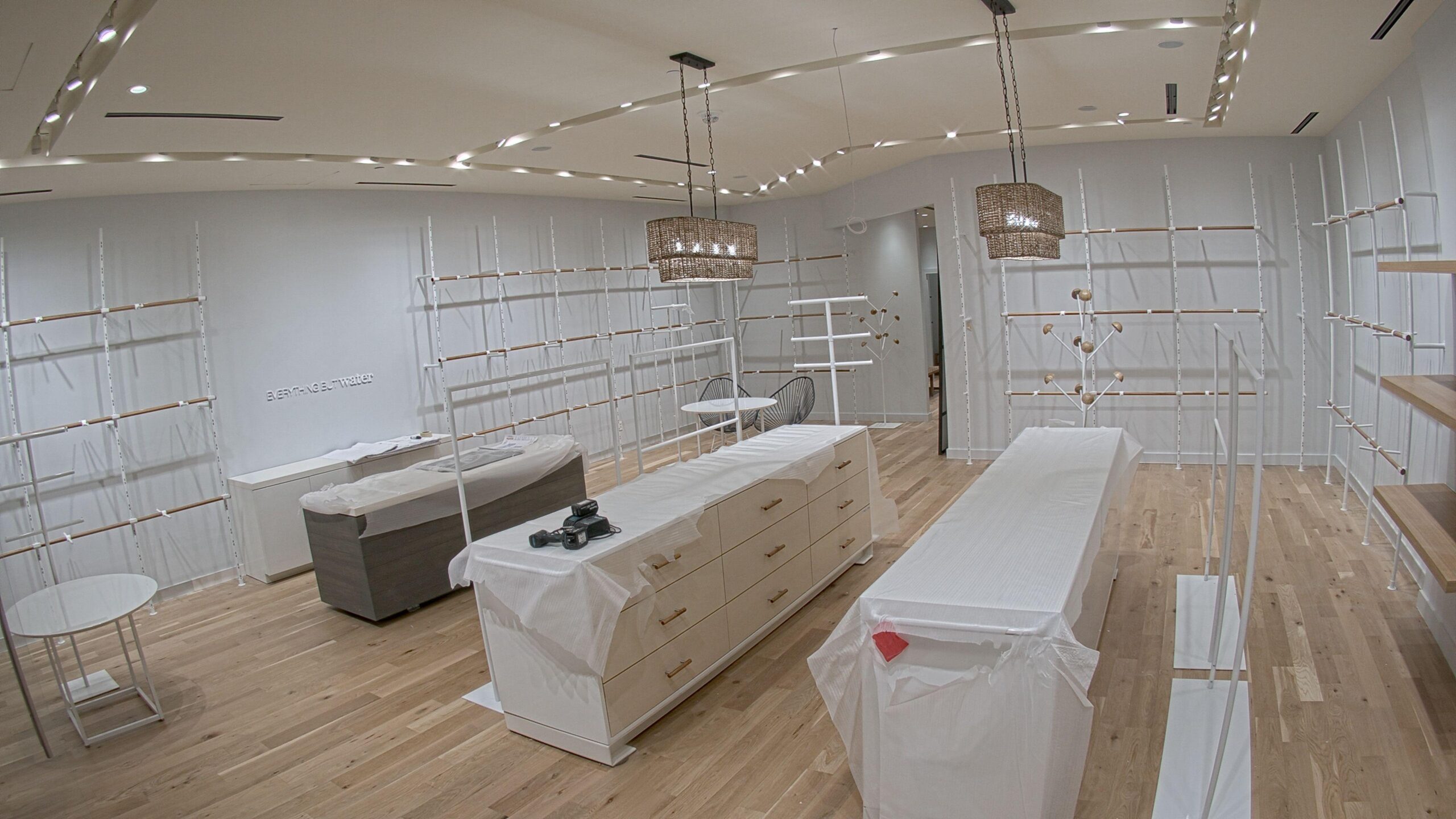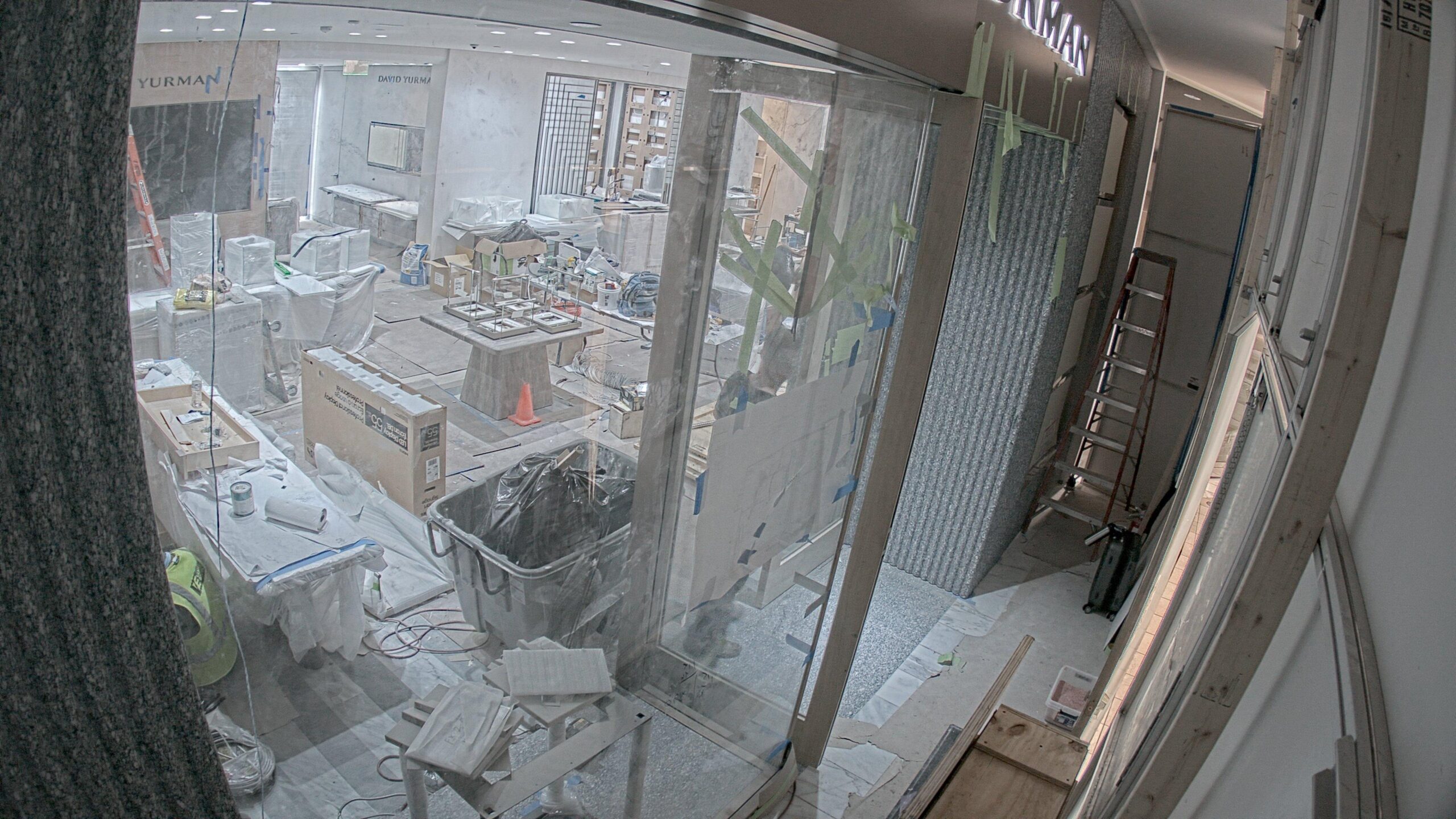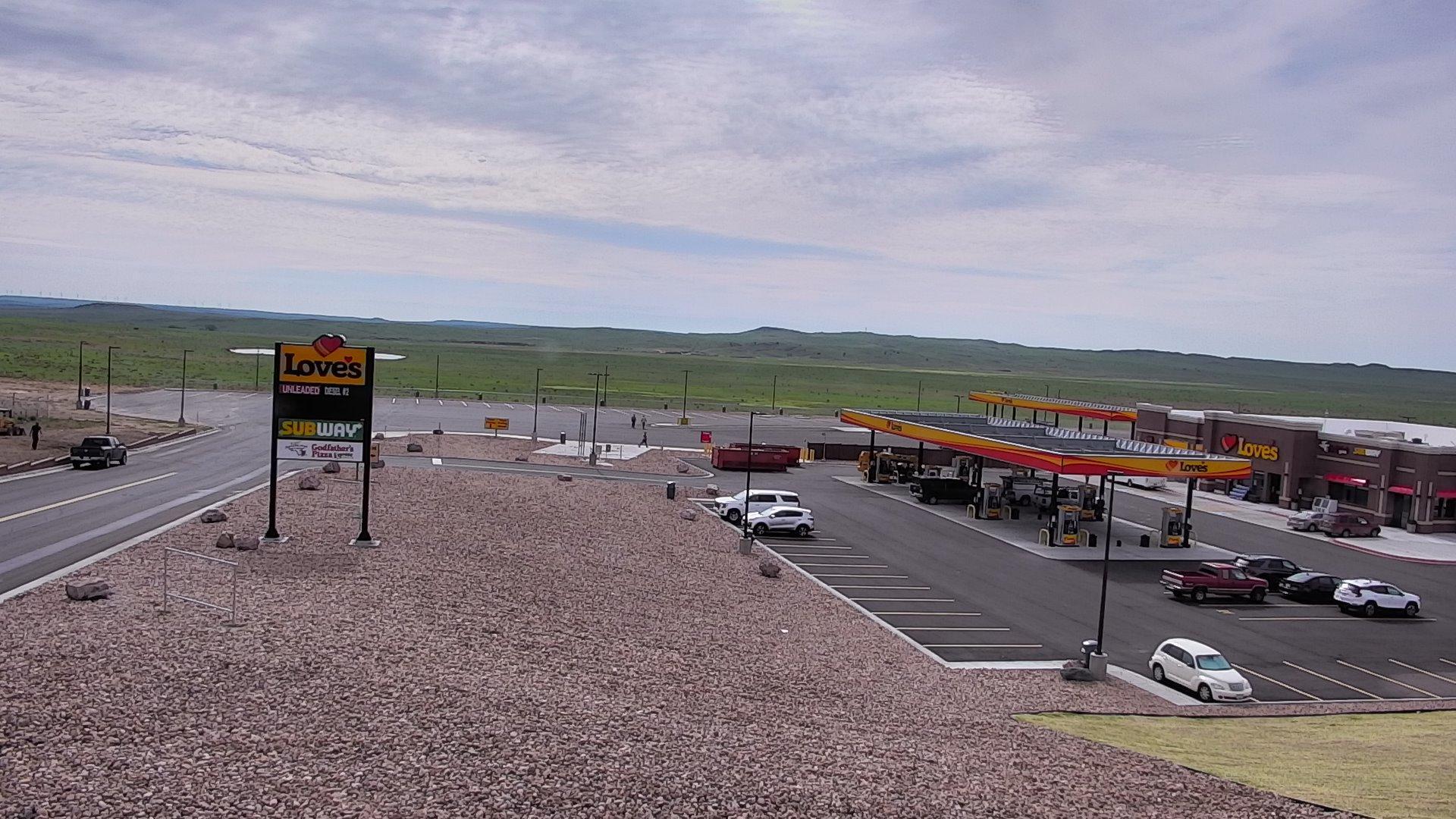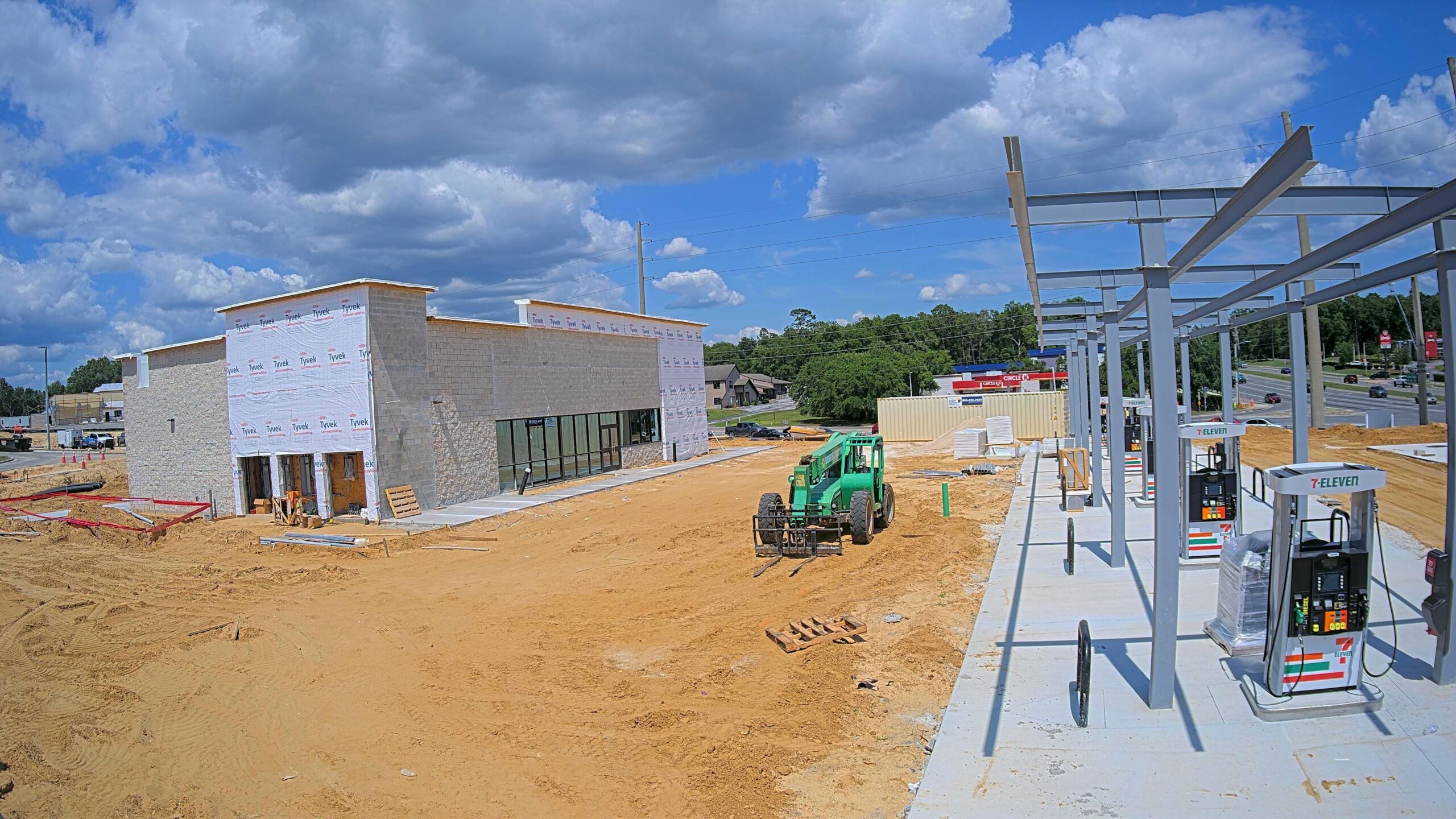Retail construction development has entered a new age in recent years. The rise of e-commerce, in tandem with the aftermath of the pandemic and volatile market conditions, has pushed retailers to reimagine how they use their spaces to sell goods. As a result, retail developers are encountering unprecedented challenges and uncovering new, exciting opportunities.
*Images taken by TrueLook Construction Cameras.
Emerging Trends in Retail Construction
Gone are the days where, “if you build it, they will come.” Retail construction companies and commercial contractors must adapt to meet the needs of the public. Several emerging trends are shaping the current landscape of retail construction and ushering in a new standard for commercial construction.
- Sustainability: An increased focus on sustainability is pushing retailers to explore more eco-friendly designs and materials and invest in energy and waste reduction strategies.
- Modularity: Retailers are opting for modular store designs that can be reconfigured to meet changing market trends and consumer demands.
- AI Technology: New technology such as virtual reality and artificial intelligence are integrating with construction cameras and jobsite surveillance devices to streamline the construction process and mitigate risk at the construction site.
Roadblocks in Commercial Construction
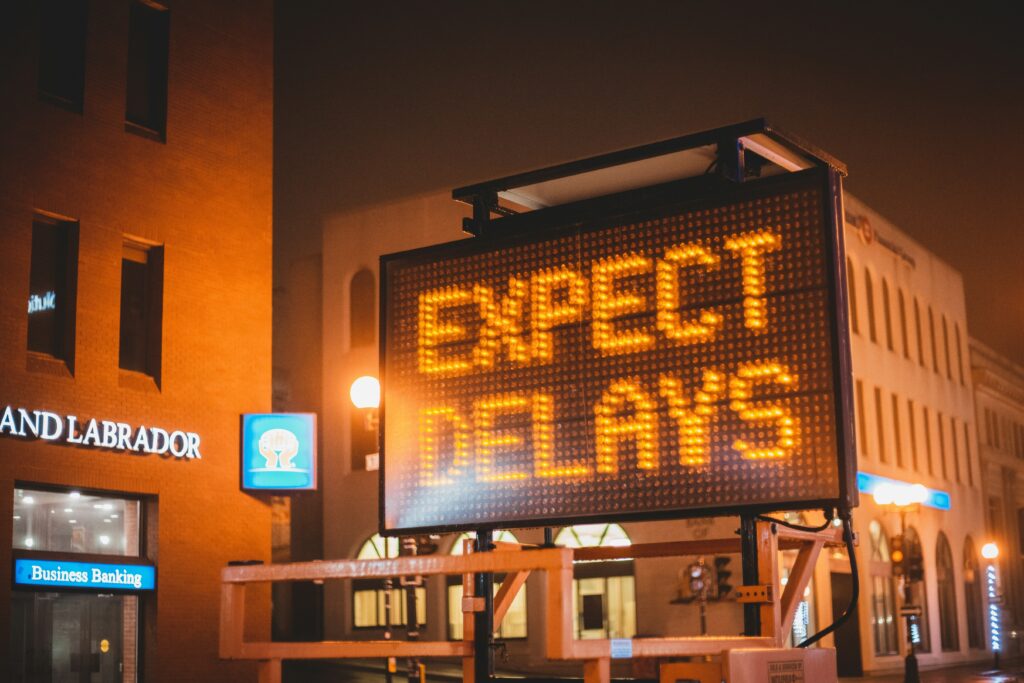
Of course, retail developers are still facing their fair share of challenges, some new, and some familiar. Regulatory and zoning challenges can significantly delay projects and increase costs, while financial considerations such as securing funding and managing investment risks remain critical concerns. Not to mention, residual effects from the pandemic are still disrupting supply chains and market conditions, resulting in unexpected costs and project delays.
To navigate these challenges and maintain a competitive advantage in an ever-evolving market, retail construction companies and commercial contractors must stay on top of emerging trends and leverage opportunities to make retail construction development easier.
5 Tips to Make Retail Construction Development Easier
1. Streamline Permitting and Zoning Processes
Permitting and zoning are some of the most common culprits of project delays in retail development. Thanks to new digital tools, it is now possible to streamline the process. Many cities have implemented online permitting systems, enabling developers to submit permitting applications and track progress much more easily. These systems improve transparency and reduce delays.
Retail developers will also want to ensure that they stay up to date with current regulations, building codes, and zoning laws so that their applications are more likely to be approved.
2. Utilize Technology and Data Analytics
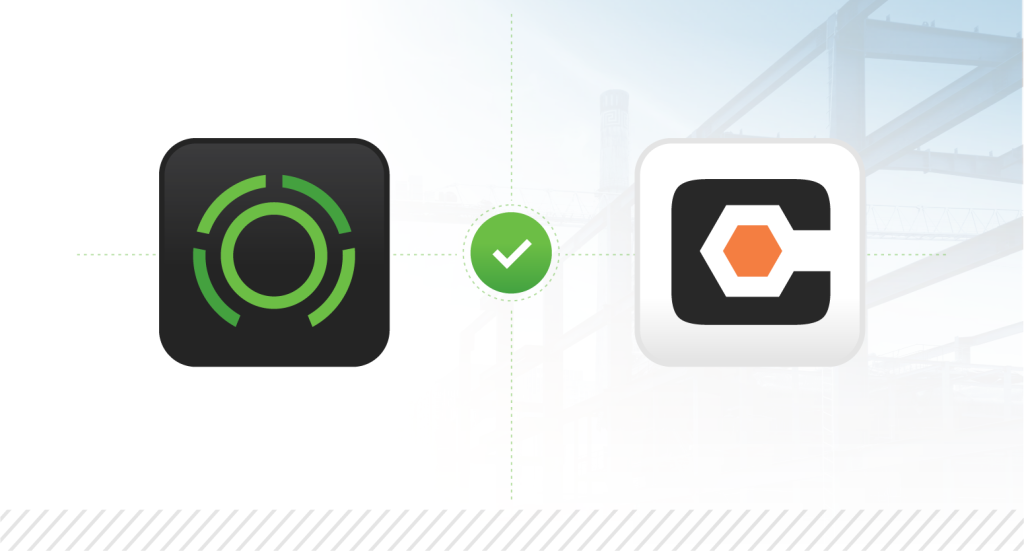
The emergence of construction management software solutions such as Procore and Autodesk has greatly improved project management. These construction software solutions not only help improve things like budget tracking, project planning, and activity tracking but also provide better data analytics to inform decision-making and help managers find efficiencies.
The emergence of artificial intelligence (AI) integrations is rapidly enhancing the analytical capabilities of construction management software. Retail developers will want to ensure they are investing in and staying on top of the latest integrations to improve efficiency and find ways to cut costs.
3. Foster Collaboration with Stakeholders
Building strong relationships with project stakeholders is critical for any retail construction project. There are several strategies that developers can employ to foster collaboration with their stakeholders including ensuring proactive communication, sharing detailed project plans, and soliciting stakeholder input on key decisions. Software platforms often have capabilities that can ensure streamlined communication and document sharing between stakeholders, contractors, and project managers.
Another highly effective way to build stakeholder trust is to provide transparency throughout the building process with construction cameras. Cameras enable comprehensive documentation, live viewing, and time-lapsing, all of which are critical for providing reliable project updates and insight into the project. Not to mention, the added jobsite security can provide peace of mind to project investors and stakeholders alike.
4. Focus on Sustainable and Flexible Designs

Sustainability and modular design are the future of retail construction. Developers who invest in sustainability best practices and build capabilities to integrate flexible designs will maintain a competitive edge in the coming years.
Tools including building information modeling (BIM), energy management systems (EMS), and drones can help with things like project planning, material optimization, and energy usage reduction both during the construction process and once the building is completed. Prefabricated and sustainable building materials can also greatly help reduce the energy cost of building.
5. Invest in Community Engagement
Community buy-in is critical for ensuring an easy building and permitting process and establishing a good company reputation. Holding meeting forums, especially during the early stages of the project, asking the community for feedback through surveys, and providing regular project updates through pictures and videos can all go a long way toward building a strong relationship with the community.
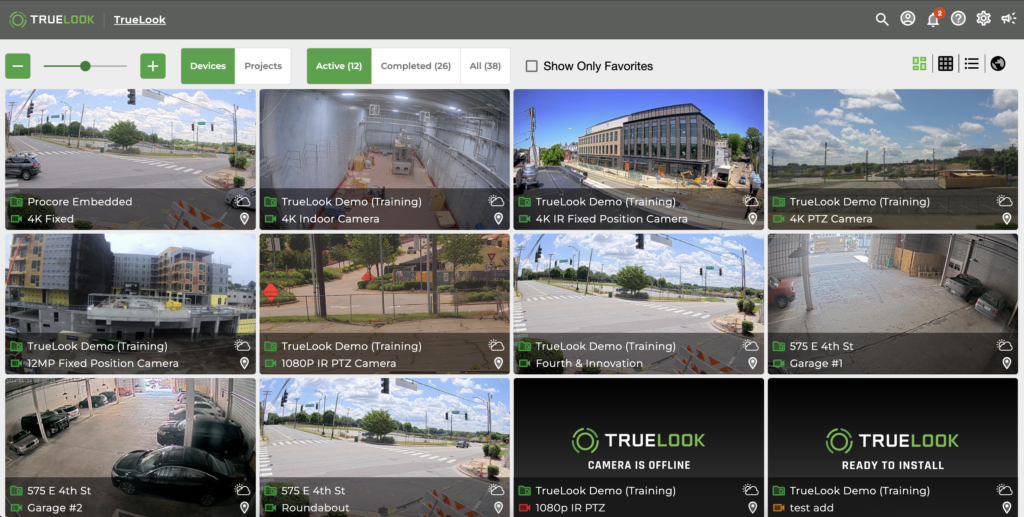
Social media platforms and tools like live-view construction cameras are also useful for documenting progress and sharing footage of the project. Drone photography or time-lapse videos can help build excitement within communities that will not only garner support during the construction process but will also pique interest and engagement once the project is completed.
The Future of Retail Construction Innovation
As the retail construction landscape continues to shift according to market changes and emerging technology, retail developers will be tasked with staying on top of new trends to navigate unexpected challenges and capitalize on opportunities. New technologies and tools such as AI integrations, construction cameras, and sustainable building materials can help developers navigate new challenges as they arise and make the construction process easier today.
Do you need more visibility on your next retail construction project? Our interior construction cameras are built specifically for interior projects, remodels, and retrofits offering the same performance as our exterior cameras but in a compact design. Invest in TrueLook Construction Cameras to keep your employees, investments, and future protected.

